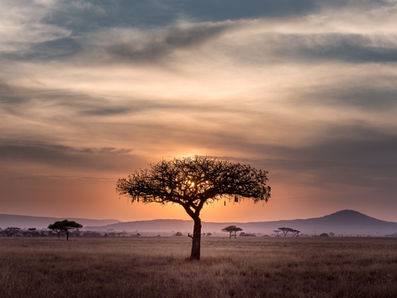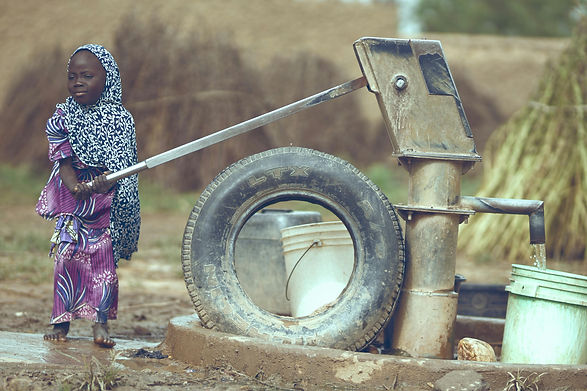
About
Africa's Sahel region is a geographic belt that is 1,000 km wide and 5,400 km long, cutting across Northern Africa from Senegal's Atlantic coast to the Red Sea coast of Eritrea. This semi-arid region is located between the Sahara to the north and the Sudanian Savannah to the South.
The region historically experiences the most consistent and extreme droughts in Africa, which severely impacts the livelihoods of people in the Sahel region, resulting in some of the most socio-economically deprived people in the world, mass migration, and instability.
Against the backdrop of the ongoing Boko Haram insurgency and the COVID-19 pandemic, other factors like population growth, climate change, environmental damages, disease, poverty, and illiteracy have stifled development in the extreme north or Sahel region of Nigeria.
Severe water shortages in Northern Nigeria have also led to conflict between farmers and herders, internal displacement, abuse of children who travel long distances in search of water, child illiteracy as a result of children having to prioritize the search for water over education, and the spread of communicable diseases.
Working Towards a Better Tomorrow
The Sahel Initiative was formed to help combat this water problem. We are an all-volunteer group of individuals that aim to bridge the gap caused by water scarcity by ensuring affected rural communities in the region have safe and equitable access to a sufficient quantity of water for their domestic needs.
Access to safe water can turn rural problems into potential — unlocking education, economic opportunity and improved health for the many women, children, and communities in the Sahel region of Nigeria. We believe that no community should be held back by something as basic as water scarcity.
Why It Matters
Water scarcity is one of the greatest challenges facing the Sahel region. The region is home to some of the most socio-economically deprived people in the continent. The vicious cycle of disease, poverty and illiteracy has emasculated development. Water shortage has led to conflict, children abused while traveling long distances in search of water, internal displacement and the spread of communicable diseases.
In many rural Nigerian communities:
-
Women and children walk miles each day in search of water.
-
Families rely on unsafe sources, leading to waterborne diseases.
-
Lack of water limits opportunities for education, farming, and small businesses.
But with clean water nearby, everything changes.

Our Vision
Our vision is to build a future in which all people living in the Sahel region of Nigeria have access to clean and safe water.
We strive to secure adequate, sustainable, and equitable water resources to enable families and communities to thrive. By doing so, we hope to reduce poverty, improve health outcomes, increase educational attainment and economic development in these underserved areas.


Our Mission
To bridge the gap caused by water unavailability by providing rural communities in the Sahel region of Nigeria with safe, equitable access to sufficient water for their daily needs.
The Sahel Initiative aims to help poor rural communities particularly those that have been afflicted by strife in the following ways:
-
Provide drinking water to disadvantaged communities particularly those recovering from conflict by:
-
Sinking new deep wells/ boreholes
-
Rehabilitating water supply systems
-
Sustainable water purification technology where surface water is available
-
-
Develop a reforestation programme alongside water provision
-
Partner with sister NGOs in a community upliftment programme
Our Approach
How We Work
Through a simple, sustainable, and community-centered approach:
-
We raise funds from a small, committed group of donors.
-
Every quarter, we sink a new borehole in a water-stressed community.
-
Each borehole delivers safe, reliable water for drinking, cooking, cleaning, and daily living.
Our Model
A growing network of donors contributing between $15 and $45 per cycle makes each project possible. 100% of donations go directly toward borehole projects.





